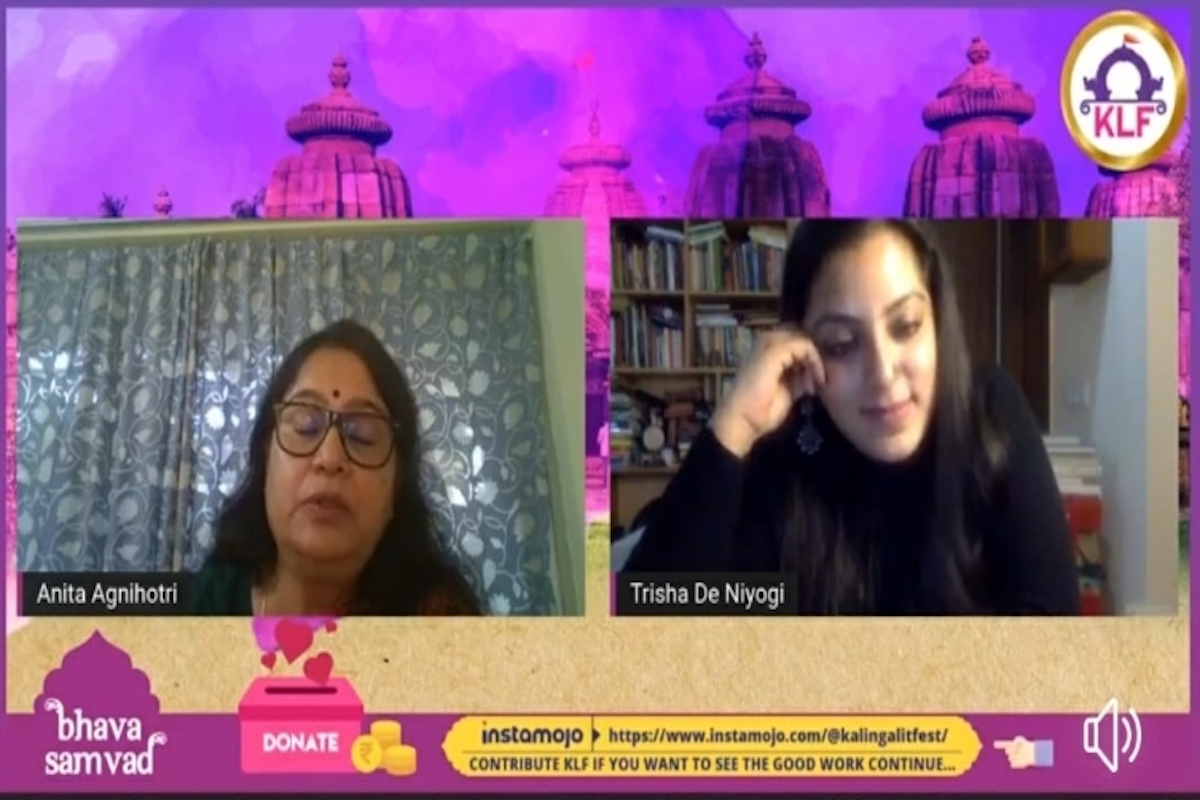Author Anita Agnihotri has revealed to KLF Bhava Samvad, Kalinga Literary Festival’s virtual platform, that her next book will be ‘A Day In The Life Of Mangal Taram’
On February 6, during the virtual interaction with Trisha D. Niyogi, director Niyogi Books, Agnihotri revealed that her next will be based on Odisha’s lifeline River Mahanadi.
Advertisement
She talked about her journey with short stories mentioning, “As a child I grew up reading short stories of Rabindranath Tagore and Bibhuti Bhushan Bandopadhyay.
“The short stories of Tagore beautifully talk about the rural countryside and rural people. The traditional writing about rural life is not new in Bengal.”
“I am often asked by my readers that if I return back to Kolkata and do what I intended on doing, that is, teaching Economics in University of Kolkata, then what my writing would have been like?” She calls it a hypothetical question.
“I suddenly feel reading of economics did help because the understandings of the economy apart from the social aspects of economic life,” she commented.
“I have a craze about rivers and people living around rivers. In my first novel Mahuldiya days, there is river Brahmani which flows from Rourkela and comes down and hits the sea. The boat people who earned their livelihood from it lost their livelihood when the bridge came up.”
Speaking about Mahanadi, she says, “Mahanadi was a different story altogether. As a child I was very fascinated by the river Mahanadi. We had to cross the river while we were travelling in train to Puri from Kolkata. It was a huge river. Later when I started working, I carried this fascinating river and the people whom I saw in the villages along Mahanadi and small towns. I felt lack of courage. I felt what would happen if I fall short of what is required to write a novel like this. It took me about 4-5 years to write the book.
“I went to the source of Mahanadi in Chattisgarh because I felt until I see the river emerge, my idea of it wouldn’t be complete. Then I went to the river mouth in Jagatsinghpur.”
Throwing light on her idea of research and a researcher, she mentioned, “People use the word research or ‘gabeshona’ in Bangla. No I’m not a researcher in that sense. I feel that your writing comes from the warmth of the human bonds and human existence and that’s exactly what you use in the process of writing the book.
“Travelling is essentially a part of my existence. For no reason, I just go away to a different place and meet some people.
“I realize that I am in a beautiful place, beautiful campus, but this life is all defined. At the same time you are hit by the trauma of people facing the pandemic, people losing their jobs and migrant workers thrown out on the road.
“The storytelling and crafting a story has never been a conscious process with me. My stories don’t come out as per a plot. Maybe you look at a broken wall, a tree, a certain face and stories start growing in your mind.”









